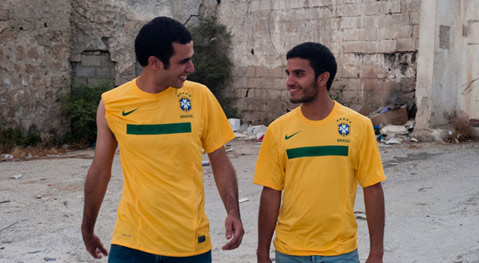The Other Son
Pascal Elbé, Jules Sitruk, and Emanuelle Devos star in a film written by Lorraine Levy and Nathalie Saugeon and directed by Levy.

Although a certainly well-meaning and often emotionally true film, The Other Son suffers from the central credulity-straining conceit at the heart of its narrative — the old “switched at birth” yarn. We’ve seen films addressing the forced interaction of families on “opposite sides” of a border or family chasm, through Romeo and Juliet–like romances between lovers from enemy camps. But here, the notion of a hospital mishap 20 years earlier, switching Israeli and Palestine babies, is a tall narrative order that director and cowriter Lorraine Levy never quite resolves or transcends in the film.
Believability issues aside, it’s hard to fault the underlying theme put forth here, an appeal for peace and compassion between Israelis and Palestinians. The Other Son is at its best as a story dealing with lives of “others,” carefully avoiding taking sides. Scenes from Tel Aviv and the Palestinian village where the two misplaced sons have grown up are punctuated by telling shots at border crossings and along the oppressive and infamous wall in the West Bank, vivid motifs and metaphors of the bitter enmity in that small but explosive region. The fathers of the swapped sons at one point erupt into broadside comments about Israeli “apartheid” and the ancient historical claims of Israel, but later, they sit for coffee — no talk, but coffee. It’s a start, negotiation-wise.
As for the sons themselves (fine, understated performances by Pascal Elbé and Mehdi Dehbi), when suddenly made aware that their lives have been “lies” and their identities as Jew and Arab are thrown into disarray, they seem adaptable to this new reality checkpoint. They are disinclined to buy into the fear and loathing of their father’s conflict. In other words, hope is in the air by film’s end, and that implicit message is the film’s strongest gift.



